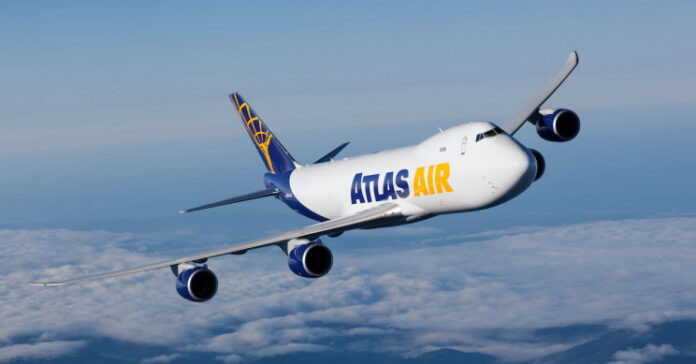915 million tons of carbon were produced by the commercial aviation industry in 2019, but the industry is working to make that number smaller. In fact, many major players have a target of halving their emissions by 2050 in comparison to 2005.
Reducing aviation-related carbon emissions is no easy task though, but one path to sustainability might be more sustainable fuel.
Recently the air cargo carrier Atlas Air Worldwide completed a test flight out from Spin to Mexico City that was powered by a blend of sustainable aviation fuel. It was a cargo flight that was fueled with a blend of sustainable aviation fuel, referred to as SAF, and traditional Jet A-1 fuel.
The mix was developed with Exolum and it contained roughly 2.33% SAF. While that may not sound like a lot, demonstrating efficacy even at small percentages would result in a massive drop in overall emissions output for the industry as a whole.
As for the SAF in the fuel, it was sourced from fresh vegetable oil.
RELATED: DELTA DECLARES $1 BILLION INVESTMENT TO BECOME CARBON NEUTRAL BY 2030
Atlas Air’s President and Chief Executive Officer, John W. Dietrich, said in their press release that
“Innovative sustainable aviation fuel test projects demonstrate our ability to partner with our customers and suppliers to help create a more sustainable future for the air cargo industry and global commerce. Through ongoing meaningful partnerships, we will drive wider acceptance and availability of SAF, which will lower costs and have a positive impact on our industry and the environment.”
One of the most notable aspects of the greener fuel is that it has been demonstrated to reduce carbon emissions by 80%.
The full press release from Atlas Air can be read here.
.





